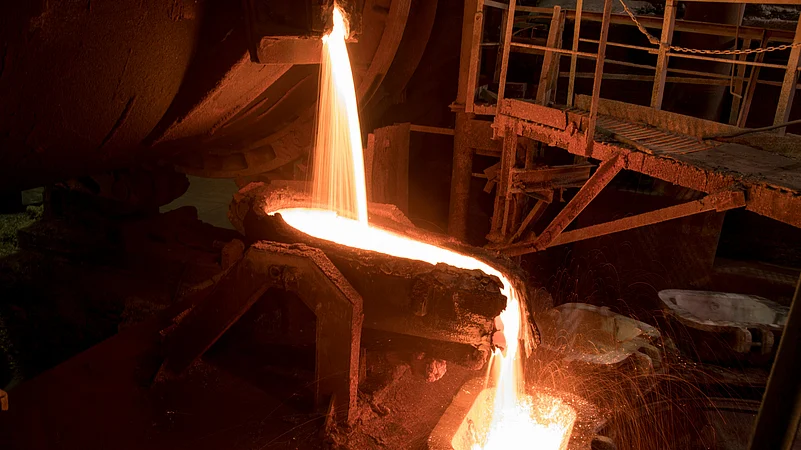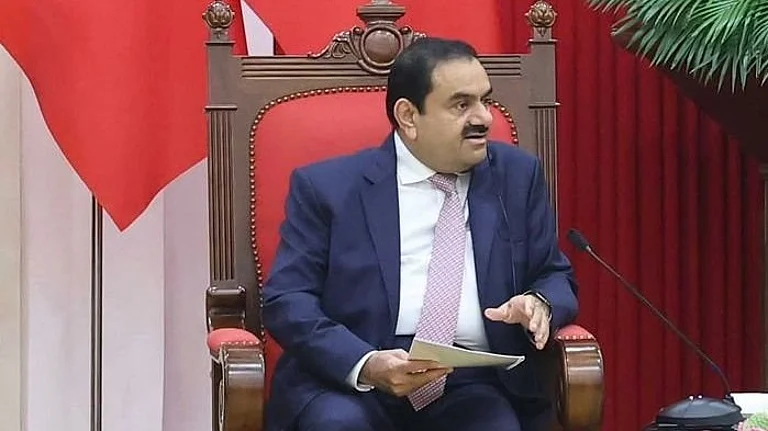
By pursuing LME listing, Adani's Kutch Copper smelter hopes to increase India's visibility internationally and gain access to global copper futures markets.
The facility supports India's push for self-sufficiency and less reliance on outside sources by aiming to cut copper imports in half by 2029.
As the demand for copper increases, domestic production will sustain India's economic worth, generate 7,000 jobs and power clean energy.
Adani Enterprises’ new Kutch Copper smelter, its flagship copper-making facility valued at $1.2bn and with an annual capacity of 500,000 tonnes, has applied to be a listed copper-producing brand with the London Metal Exchange (LME), a global metals trading hub, on August 13, according to Reuters.
Why This Matters
The LME is a market meant for trading base metals where traded options contracts are available against underlying futures contracts, according to Nasdaq, a global securities trading exchange. The LME provides a platform for participants from the physical industry and the financial community to create a vital, robust and regulated market where there is always a buyer or seller, where there is always a price and where there is always the opportunity to transfer or take on risk—24 hours a day.
An LME listing means copper from Kutch can be warehoused in LME registered facilities and delivered under global futures contracts, making it easier for market players to finance than non-listed brands, according to Reuters. This move positions Kutch Copper as a serious player in the global metals market, making Indian copper both more liquid and globally competitive.
“With Kutch Copper commencing operations, the Adani portfolio of companies is not only entering the metals sector but also driving India's leap towards a sustainable and aatmanirbhar (self-reliant) future,” said Gautam Adani, Chairman of the Adani Group, in a statement released by the company.
Shrinking India’s Copper Import Reliance
So far, India has heavily relied on imports to meet its copper needs and the smelter is expected to minimise the country’s dependence on imported copper. According to the Ministry of Mines, the country imported approximately 3,63,000 tonnes of refined copper cathodes in 2023–24, largely from Japan. Citing Trade Data Monitor, a global trade statistics provider, Reuters stated that India imported $2.8bn worth of refined copper last year, mainly from Japan, Tanzania and Mozambique.
With Kutch Copper smelter amplifying its annual production capacity of 500,000 tonnes and planning to scale it up to 1mn tonnes per annum by 2028–29, it can position itself as self-sufficient in refined copper, drastically cutting copper imports. In December 2024, the Ministry of Mines stated, “Once achieved, India will be self-sufficient in refined copper and will not have to rely on imports.”
Supporting India’s GDP, Energy Transition and Employment
Given India’s push for the EV sector and renewable energy goals, understanding the growing importance of copper is more crucial than ever. According to the Ministry of Mines, India’s per capita consumption currently stands at 0.6 kg. This constitutes a minor share when compared with the global average of 3.2 kg. However, the country’s copper demand is expected to double by 2030 amid the ongoing energy transition, reported Reuters.
Another benefit of producing copper domestically is that the country will not only save on imports but also reduce direct expenses by extracting numerous by-products such as gold, silver, selenium, tellurium, platinum group metals, nickel and sulphuric acid (pyro-smelting). These are used widely in fertilisers, pharmaceuticals and chemicals, according to the 2025 Vision Document on Copper Sector published by the Ministry of Mines. Retaining this economic value domestically supports wider GDP growth.
The Kutch Copper smelter will generate 2,000 direct and 5,000 indirect employment opportunities, boosting Gujarat’s economy. In addition to the facility, Adani’s forward integration strategy to add copper tubes to its portfolio further strengthens supply chain jobs in heating, ventilation and air conditioning and refrigeration sectors.
Critical Mineral for Green Goals
Designated as one of the 30 critical minerals by the Indian government, copper plays a key role in progressing national goals for green energy. The Ministry of Mines has explicitly said that domestic smelters like Kutch Copper will help the country achieve import independence and secure the raw materials required for its green transition ambitions.
































